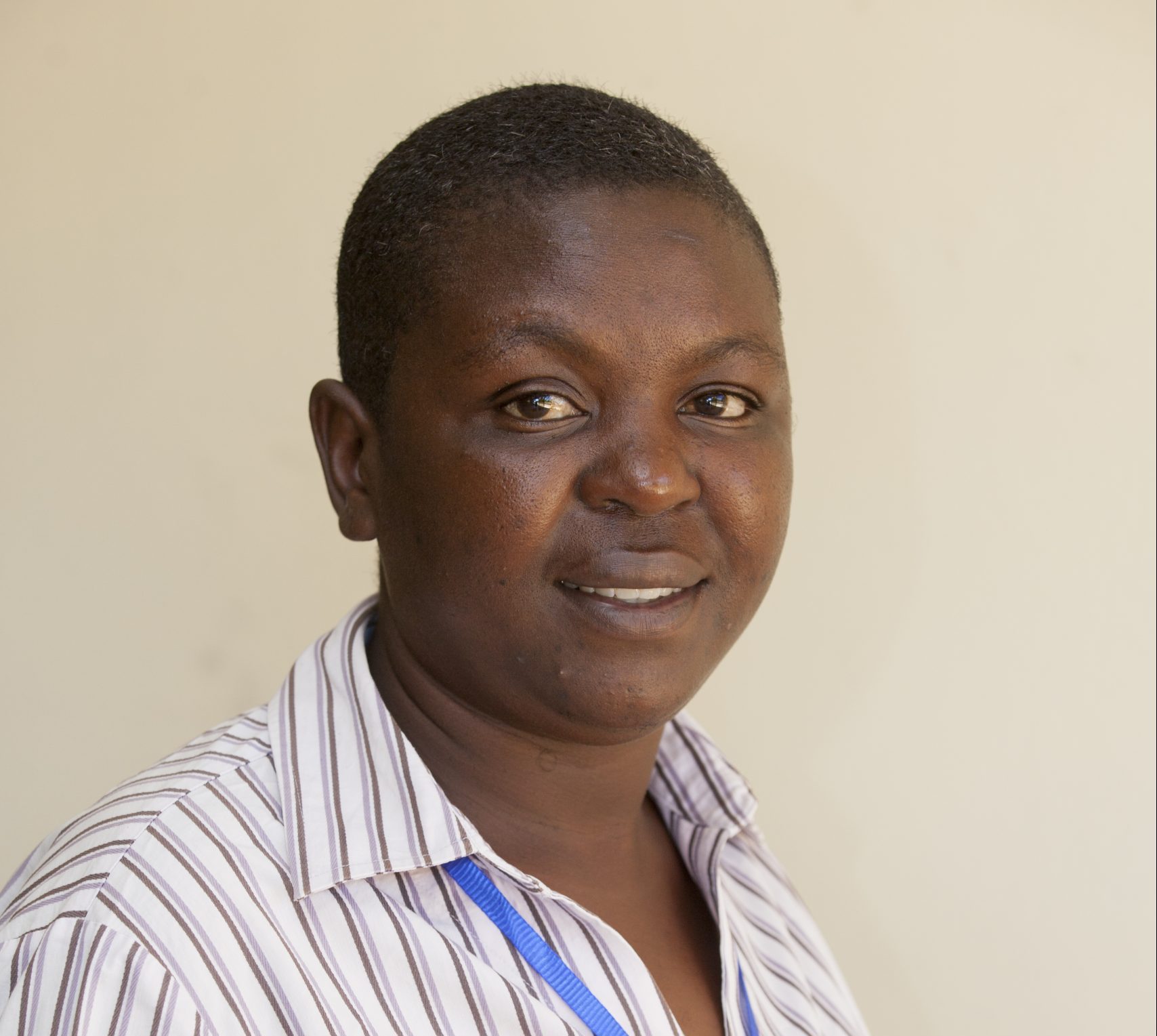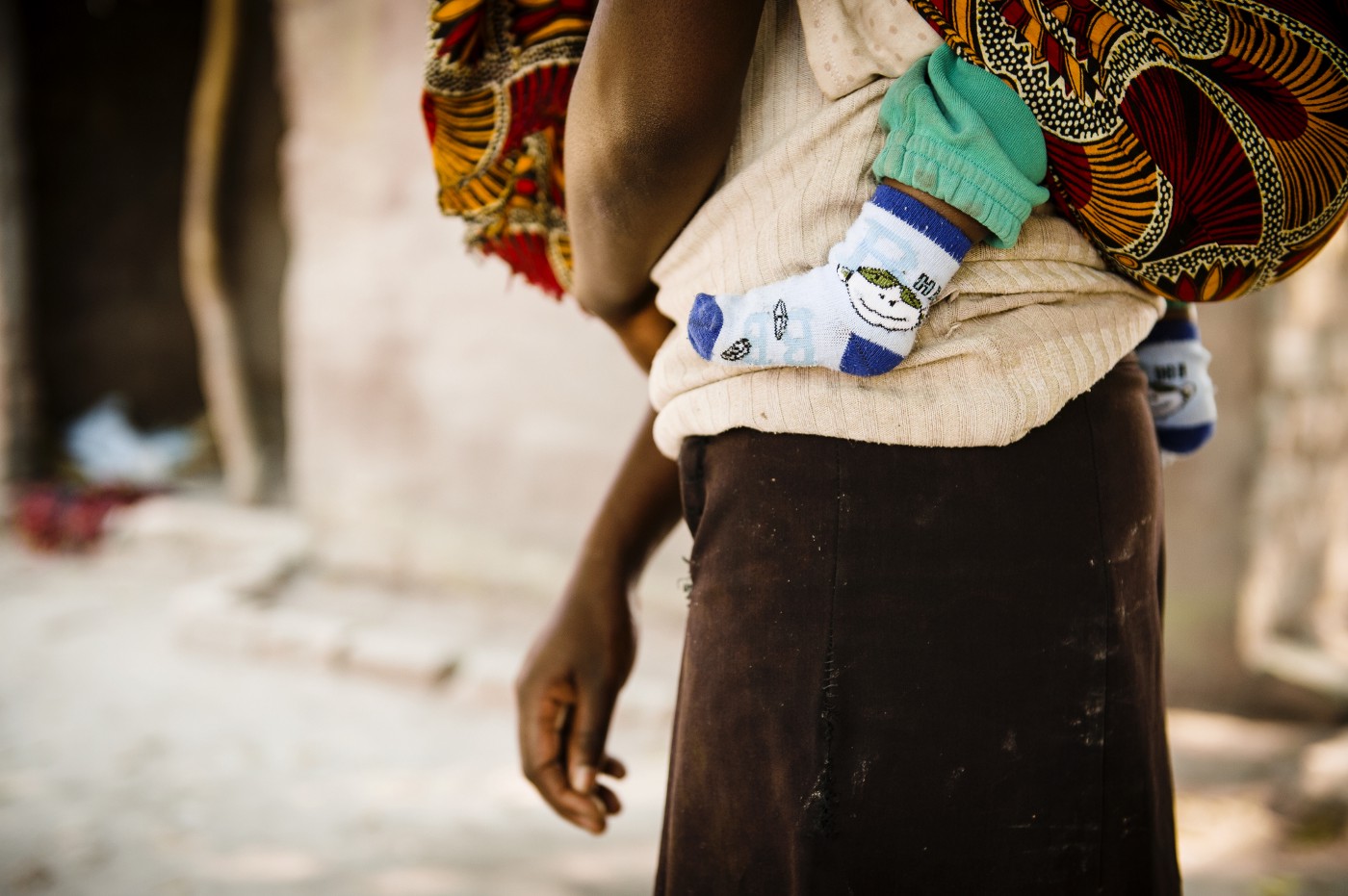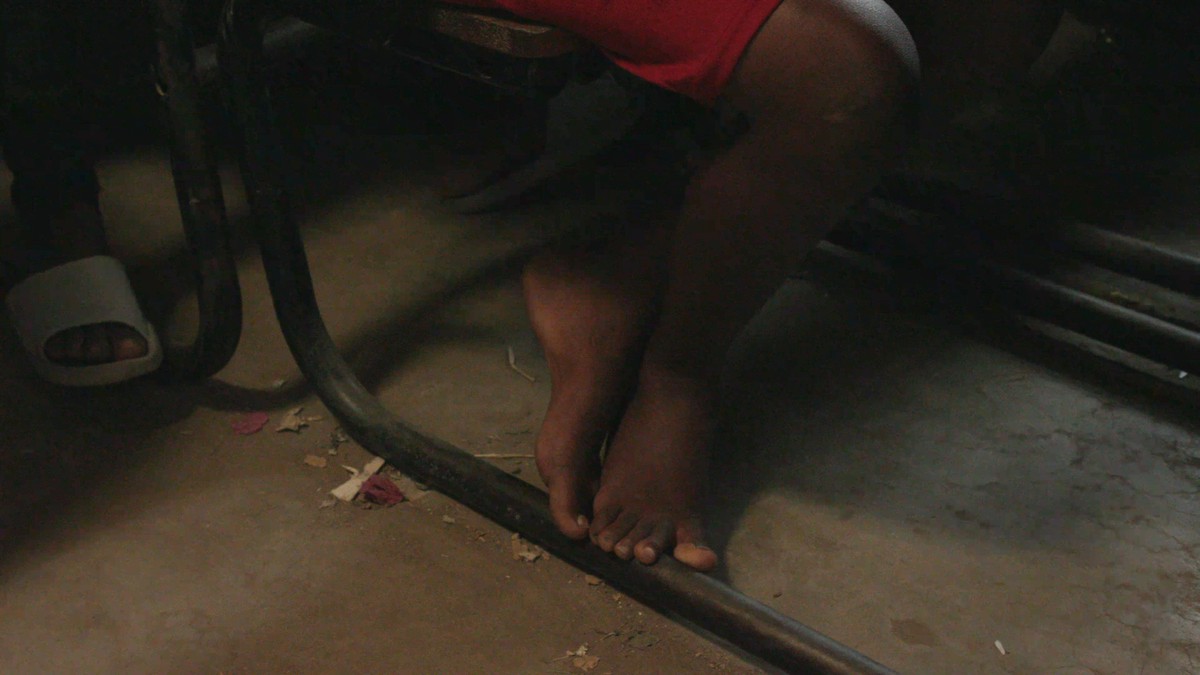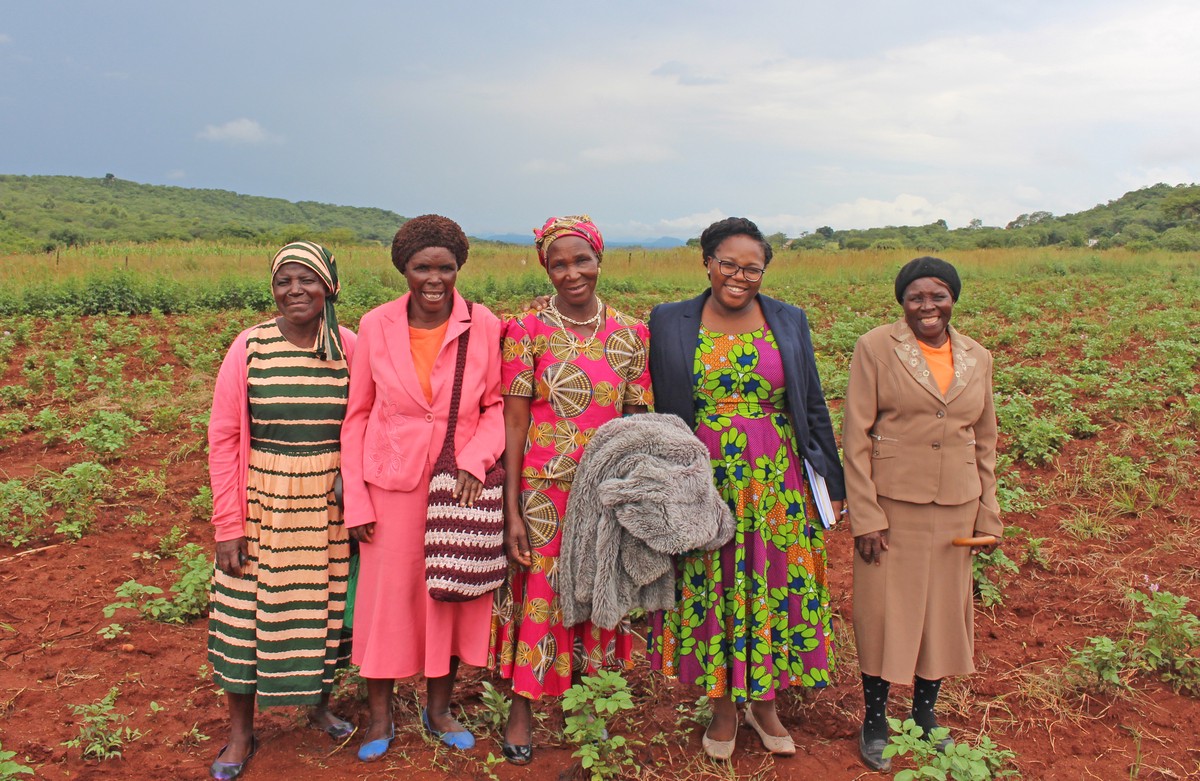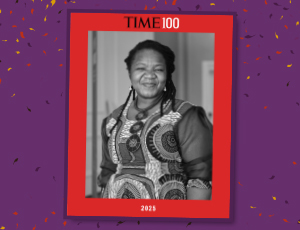This Day of the African Child, CAMFED Association leader Judith Msindo describes how her own struggles inform her determination to support and seek justice for victims of abuse or neglect, and underscores our collective duty to make sure that girls are safe to learn, thrive and lead.
I used to sleep in a tree near my school, when I did not have a safe place to sleep at home. I felt that my teachers were the ones who understood me best.

Education was my only hope.
I wasn’t brought up by my parents, but by distant relatives who suffered extreme poverty and struggled to support me. I never owned a pair of shoes while I was in primary school. We could hardly find enough money for food to eat, for basic needs, even for shelter. Sometimes my neighbor was able to help me with food and accommodation. Other times our village head mobilized the community to help us children with food.
Education was my only hope. I wasn’t looking for marriage because I had seen the effects of early marriage in my community. For most of the women, their life was hell. It was a long journey to complete my schooling, but I knew I had to prioritize education, to work hard, no matter what.
I did not have a single home where I felt safe, so it took a village to raise me.
I did not have a single home where I felt safe, so it took a village to raise me. When I was in primary school, I had no money to pay my school fees. By the time I completed, I owed five years of fees. The village elders wrote to the school to ask them to release my grade seven certificate regardless. In exchange, they promised they would do work for the school to cover what I owed. But when the School Development Council met, they agreed to cancel the debt.

I would come to primary school without shoes, without fees. It was thanks to my teachers that I was able to complete my schooling. Photo: CAMFED/Catherine Cardwell
My teachers helped me the most. I felt they understood my problems. When I dropped out after primary school, because again I had no money for my secondary school fees or the supplies I needed, I was at home for a year. At this point most girls would feel that their only option is marriage. But I wrote a letter to the Head of my primary school. He then liaised with his staff members. The teachers raised funds for my fees, uniform and stationery, and I continued my education. Most days I would go to school on an empty stomach, so the teachers arranged for meals at school. If I failed to report to school on any day, they would follow up and make home visits. When I was in need of stationery, they would readily provide it.
After I graduated, I felt passionately that all other vulnerable children need support, especially from me. I was fundraising for needy children in my community when I met the women in the CAMFED Association — young women who, like me, completed school against the odds. It was clear that we had the same background of hardship, and the same mission: Not to stand by if any child faces hardship, or is at risk of dropping out of school. I joined the Association in 2006.
I have never stopped fighting for justice for girls and women facing gender based violence.
At the time I was employed as a temporary teacher at a government school. I became the Teacher Mentor there, providing social and emotional support to vulnerable students. I was working with Mother Support Groups (local mothers volunteering to help keep children in school), CAMFED Association members, and the recipients of CAMFED school-going support who were selected at my school — the poorest of the poor; those who were most in need. I was the only woman employed at the school at that time, and I set out to make sure that girls were safe and could thrive. I worked with the community, and involved social services or the police if I had concerns about girls’ well-being.
In the past I endangered my life by trying to tackle perpetrators alone, getting threats for interfering.
I know what it means to be scared, alone and vulnerable. So I have never stopped fighting for justice for girls and women facing gender based violence. I used to be unable to control my emotions, especially when I discovered instances of abuse. My training as a CAMFED Learner Guide (supporting vulnerable children to learn and thrive in school) and a CAMFED Transition Guide (supporting young women into independence and leadership) has helped me to channel my passion into collective activism for children.

CAMFED Learner Guides, young women who have themselves experienced great hardship, mentor girls at their local schools, support them to study, deliver life and learning skills, and connect them to local services. Photo: CAMFED/Jon Pilch
In the past I endangered my life by trying to tackle perpetrators alone, getting threats for interfering. Now I have the skills and networks to help many learners by referring them to other stakeholders. People in my community regard me as someone who can give constructive advice when they face violence or abuse. When they reach me, if the issue needs basic counselling, I give them advice directly; but when they need more support, I refer them to the Community Development Committee and other stakeholders, including the police, the Victim Friendly Unit, the Social Welfare Department and the Ministry of Health.
One girl approached me when she dropped out after primary school, because she had no family support to continue to secondary school. This flashed back my experience of staying at home, so I paid a visit to her family and negotiated with them. They said they had no money for school fees and uniforms. I told them this wasn’t a problem, and that I would provide everything. Truly speaking, I didn’t have any money at that time, so I approached the Teacher Mentor, who then negotiated with the school administration to find her a place. I liaised with other CAMFED Association members and Mother Support Groups. Together we raised the money for fees, stationery and uniforms. The girl enrolled and today she has gone on to study electrical engineering.
When I intervene on behalf of these girls, I feel like I am doing it for myself, or for my child, because of the hardship I went through when I was young.

Mother Support Groups, part of CAMFED’s local Champions, provide food, advice, safeguarding and other educational support for vulnerable children. Pictured here with Fiona Mavhinga (second from right), a founding member of the CAMFED Association here in Zimbabwe. Photo: CAMFED/Harriet Grigg
When I intervene on behalf of these girls, I feel like I am doing it for myself, or for my child, because of the hardship I went through when I was young. I feel I have to provide help to anyone who needs it. Children and other community members trust CAMFED Association members because they know we will listen. We don’t force people to do anything. We share what they can do, and discuss the pros and cons, so that they decide on their own. With that, they know they are free to talk. We are approachable.
Now children say, ‘We want to be like you!’
We are positive role models, especially for younger children. Sometimes I ask children, “What do you want to be when you grow up?” They say, “We want to be like you!”
I have been using part of the profits from my small businesses (including a shop, livestock business, and freeze-it production) to support my children’s education, and buy stationery and school uniforms for vulnerable children in my community. Last year I used the profits from a catering initiative to support 100 students with school fees, 16 with exam fees, and 300 with stationery. I was also assisting other CAMFED Association members with the knowledge and resources to start their own businesses.
But now the COVID-19 pandemic has hit. I was forced to close all my businesses during the first three weeks of the crisis; we had to start using the food in the shop for our own consumption, and also to help children who are in dire need.
Now our role is to keep children safe and learning during the pandemic.
Now our job as CAMFED Association members is to talk to the children and their families, to keep children safe and learning, and ensure that they return when schools reopen. We are handing out printed materials from the Ministry of Health, written in local languages, to provide accurate health information. We are providing face masks from the Ministry, and ones that are hand-sewn by CAMFED Association members. We provide packs of learning materials to students, keeping them occupied, hoping that when the schools reopen they won’t be left behind.
We are clearing myths, as some of the children were hopeless, thinking that the disease is killing almost everyone. If we let them think that, especially the girls, they can fall prey to abuse, believing they need to have children before it is too late. That is so painful to hear. We all have a role to play to ensure that girls don’t lose their future.
Education was my only hope, and it proved my savior. Together, we need to keep the hope alive for all vulnerable children, so none are left behind.
Judith Msindo from Gokwe North, Zimbabwe, joined the CAMFED Association of women leaders in 2006, and has held several leadership positions within the network, which had more than 62,000 members in Zimbabwe by the beginning of 2020. Judith trained both as a CAMFED Learner Guide and a Transition Guide, volunteering to mentor marginalized students in and after school.
She is a successful entrepreneur, who uses the profits from her businesses to support more vulnerable children in her community, as well as to fund her family’s education, including her own degree in English and Communications. Judith is a known advocate for girls and women’s rights, determined to support her community in fighting abuse and gender-based violence.
